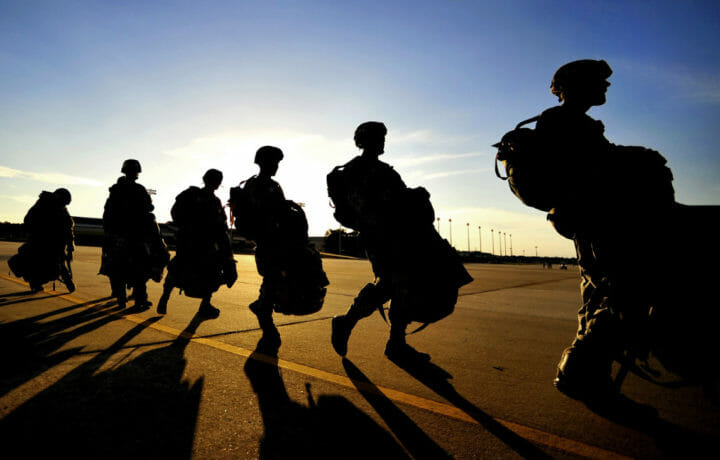When a Reservist is called up, they suspend work at a job in order to serve the nation. Their employment is supposed to be protected. But sometimes, that’s not always the case, and then the Reservist has to sort out the legal challenges.
Let’s highlight two events with respect to protecting the rights of the Reservist.
Department of Justice carries the banner
The first case occurred in April 2022, which is the settlement between the DOJ (on behalf of a Reservist, Major Mark Gunn) and the Virginia Retirement System (VRS) and Prince George County, VA. The complaint noted that Gunn had been a detective with Prince George County Police Department for 14 years. He was called to active duty in January 2016. When he returned, he found himself to have been demoted to Patrol Unit Officer. In addition, he was denied benefits that should have accrued during that period of time he was on active duty. These actions forced Gunn to depart the police department and return to active duty with the Virginia National Guard. The settlement allows Gunn to obtain credit for the period of time he departed the police department to when he began receiving retirement and two cash payments of $1,500. One payment for damages for benefits he should have received and one for liquidated damages.
Assistant U.S. Attorney General Kristen Clarke for the Justice Department’s Civil Rights Division sums up the importance of reservists to the security of the nation with, “The Department of Justice is committed to enforcing the laws that protect the civilian careers of the brave men and women who serve our country. Members of the Reserves are often called away from their civilian jobs to provide the security upon which our nation depends. They should not have to fear losing their jobs and, as here, their pension benefits, when they answer that call.”
Jessica D. Aber, U.S. Attorney for the Eastern District of Virginia, who represented Gunn noted, “Members of our military Reserves who put their civilian careers and lives on hold to serve our country should not suffer adverse employment effects.
Reservist carries the banner
The second case is the pending Supreme Court of the United States (SCOTUS) ruling on the case of Torres v. Texas Department of Public Safety. This ruling is expected to be provided by SCOTUS prior to June 30. In the Torres case, the reservist returned from active duty with severe injuries and requested accommodations from his employer, the Texas Highway Patrol. They declined to accommodate. He was forced to resign and sued under USERRA. The state is arguing that Torres should not have been able to sue the state, rather, he should have had the Department of Justice sue on his behalf.
Indeed, Texas noted in their filing before the SCOTUS that the national security of the United States is at the heart of the discussion, specifically, “war powers.”
USERRA
The Uniformed Services Employment and Reemployment Rights Act of 1994 is there to protect the rights of every reservist. The DOJ website is filled with a plethora of links, all there to assist service members and veterans to ensure they get all the resources and benefits which they are due.
The DOJ trains both the U.S. Attorney Offices as well as the military community on available resources to assist family members and service members. The Department is also prepared to step forward and represent individuals whose employers have not adhered to the USERRA, as was the case with Major Mark Gunn. U.S. Attorney Aber continued how “the United States Attorney’s Office will continue to use all legal remedies to enforce the rights of servicemembers to the correct reemployment positions upon their return from honorably serving our nation.”
The SCOTUS decision may provide guidance on the more correct path to obtain USERRA relief for future reservists. Reservists form a key component of the nation’s armed forces, and during time of need, they are brought forward to active duty in defense of the nation. Without USERRA protection, there is no doubt that many who opt-in to the Reserves would give it a wide berth, thus ultimately having a deleterious effect on the national security of the country.
The Justice Department has filed a handful of USERRA cases each year on behalf of reservists. Most of those cases end up with a settlement agreement. Interestingly, according to the Department of Labor, more than 25% of all USERRA claims are filed against public sector employers.




